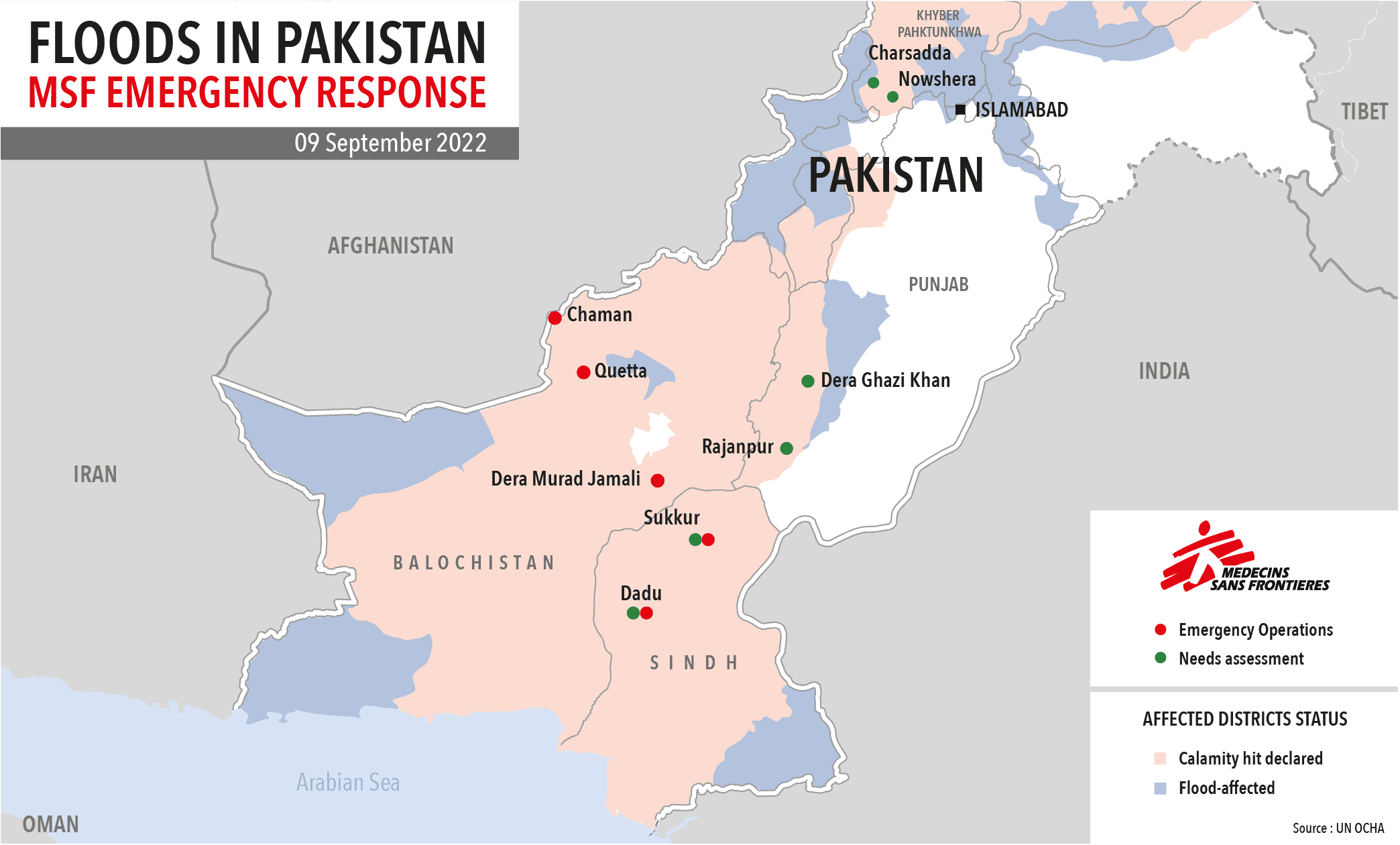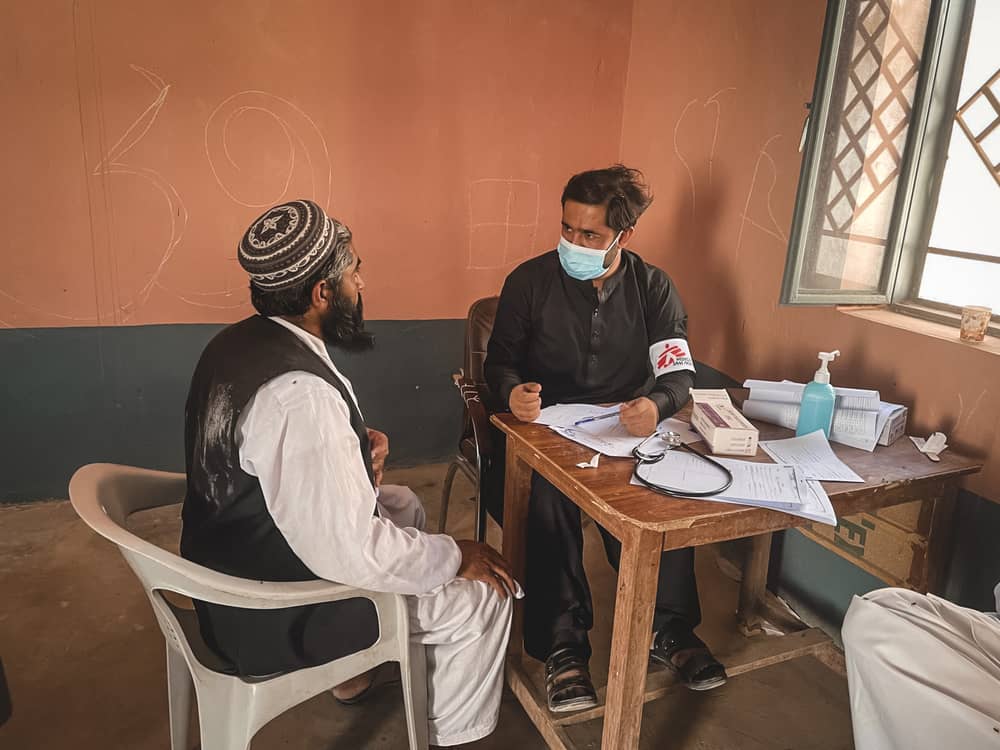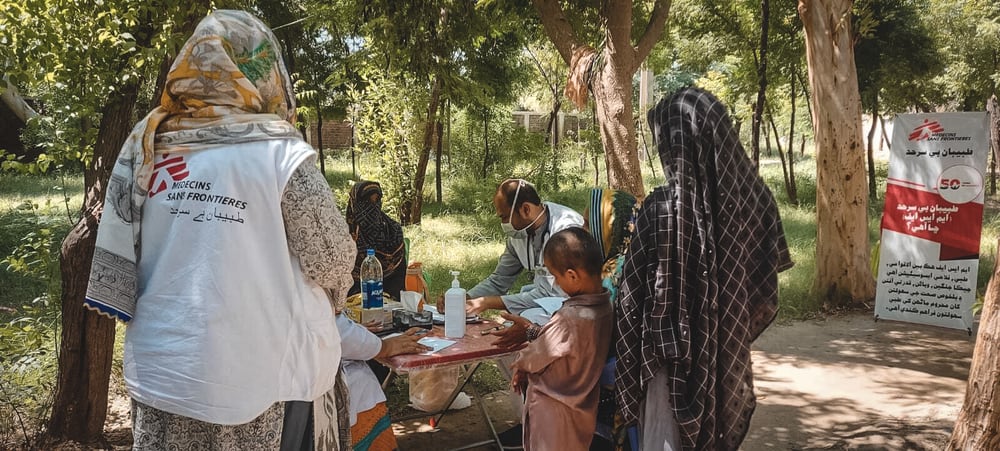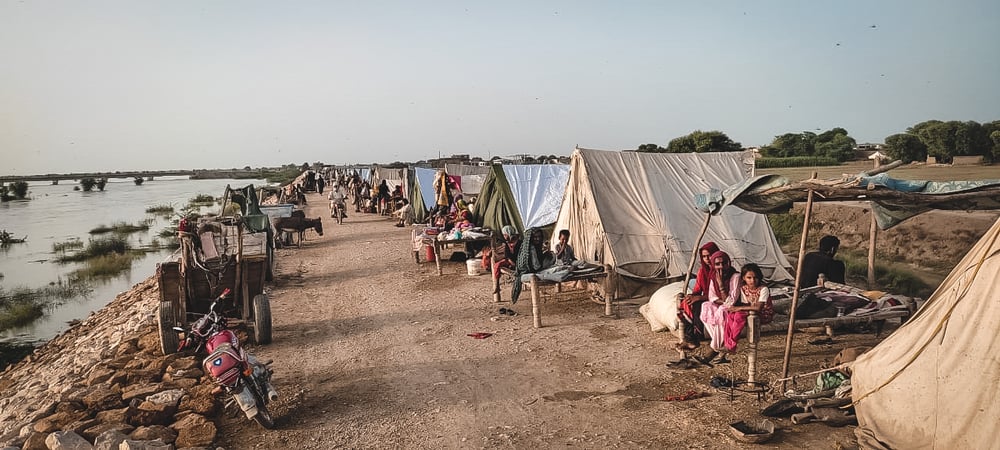Pakistan is suffering widespread destruction caused by flooding during monsoon rains, with over 70 per cent of the country inundated, over 1,000 people dead, over 1,500 injured and at least 33 million people affected. While monsoon rains have plagued Pakistan for months, they have become yet more intense in recent weeks, causing widespread damage in much of the country.
1. Estimated 33 million people have been affected by the floods
Millions of people have been affected by the floods in Pakistan, the death toll is rising, and the Government of Pakistan has declared a national emergency. Government officials, humanitarian workers, and volunteers are facing enormous access challenges to reach out to people in need. An urgent scale-up of the response is needed from humanitarian groups and others, based on the estimated 33 million people affected. The country has already received nearly three times the 30-year average rainfall in the quarter through August, totalling 390.7mm. The National Disaster Management Authority (NDMA), in its report, stated that 1,314 people have died since 14 June, including 262 women and 458 children, while at least 12,703 individuals have been injured since the onset of the rainy season.

2. There is a high risk of water-borne diseases
Pakistani health officials have reported waterborne diseases in areas where thousands of people are affected by the disaster. In the aftermath of floods, a rise in diseases like diarrhoea, cholera, dengue, malaria, and skin and eye infections can be anticipated, along with mental health issues. The World Health Organization (WHO) has announced increased surveillance for acute diarrhoea, cholera and other communicable diseases. The waterborne diseases continue to spread, especially in Balochistan, as almost all water resources were badly affected since June 2022. MSF is also monitoring the situation and planning how to intervene as needed.
3. Access to drinking water and shelter are the most pressing needs
There is a dire need for clean water and shelter, as the flood water has contaminated water tanks and boreholes and people have been forced from their homes. Our teams are doing their best to provide drinkable water. They also distribute essential goods, such as soap, hygiene products and cooking tools. We hope to be able to quickly send more material and human resources to ramp up our intervention.

4. Absence of healthcare could impact those with NCDs
Special attention must be paid to people with non-communicable diseases, such as diabetes because in the absence of functional health structures, they could suffer from a loss of continuity of care. Much depends on more accurate assessments, which our teams are carrying out.

5. Long-term consequences of these floods
“At this stage, we cannot predict anything, but we try to be ready to intervene quickly under different scenarios. These floods are likely to affect the population for months. Part of the agricultural fields, crops and food stocks were destroyed by the floods. For some people in the country, access to food could be a problem for weeks or months to come.”
Dr Khalid Elsheikh Ahmedana, Deputy operations manager of the Emergency desk of MSF France

What is MSF doing?
MSF teams are stepping up their support to people affected by the situation and are preparing to intervene quickly in case of outbreaks. MSF teams responded quickly to the flooding after the Government declared a state of emergency on 26 August, and mobile clinics providing primary healthcare and health promotion activities were put in place, and there were distributions of clean drinking water, non-food items, and hygiene and mosquito nets in Dera Murad Jamali, Quetta and Chaman in Balochistan province.
The response so far has been challenging as access issues remain, with many towns and villages cut off by the floodwater. But the number of patients the MSF teams in Balochistan are seeing has started to increase gradually as some areas have become more accessible.
Our colleagues travel to different regions to conduct assessments and start providing care to residents. Our mobile clinics try to bring primary healthcare as close as possible to the people who need it. In addition, logistics teams do their best to provide drinkable water. They also distribute essential goods, such as soap, hygiene products and cooking tools. We hope to be able to quickly send more material and human resources to ramp up our intervention.











